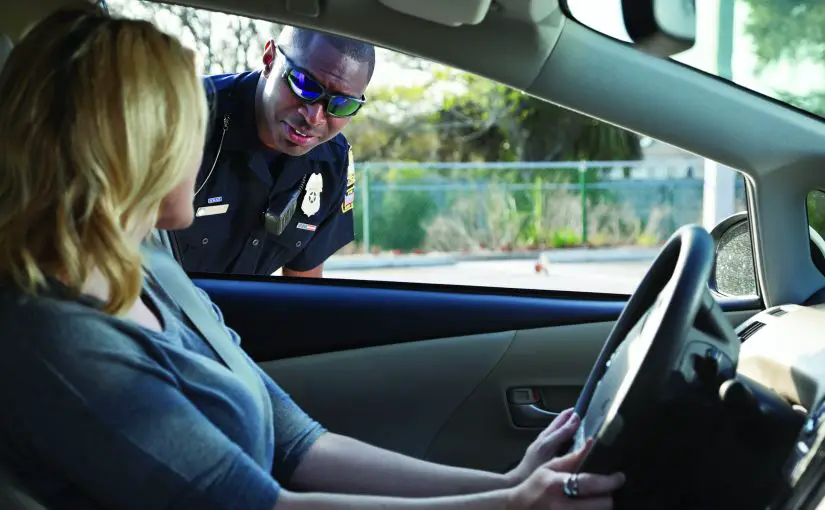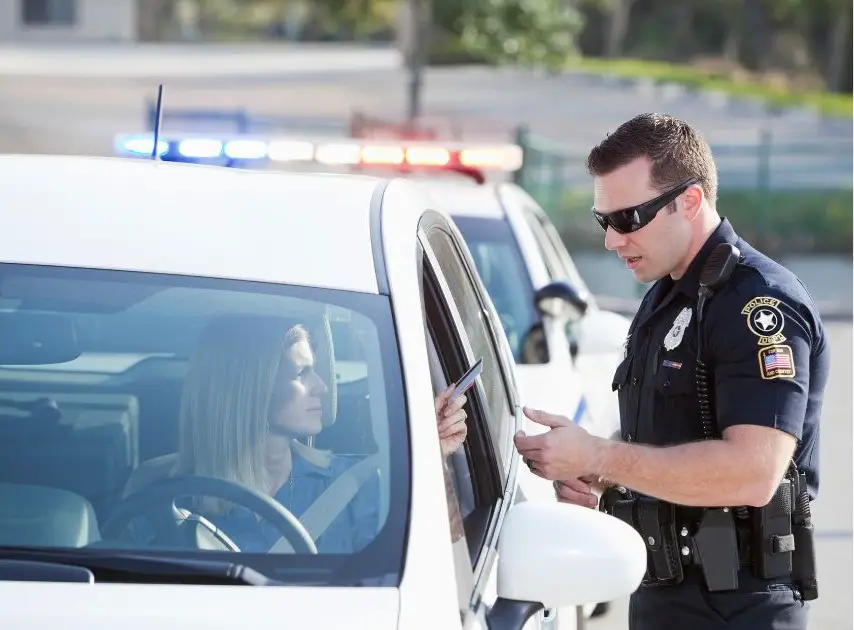Having a police officer stop you can be an incredibly stressful event. Even if you are a perfect, law-abiding citizen, it can feel embarrassing or even shameful. In a police encounter, people often use humor or become defensive. Some police officers are more reactive than others and may respond to these behaviors with frustration or aggression. Can you taunt a cop? Is it legal to laugh at a cop? Let’s get into it!
Viral Video Clip: Can You Laugh At a Cop?
In a recent viral video, a cop arrests a man for laughing at him. The cop’s body camera footage, taken during a routine traffic stop, shows the officer calling the man stupid for flashing his lights at other drivers to warn of a nearby speed trap. He adds that the man has an unsigned registration card, threatening that is an offense that could warrant an arrest.
In response to the officer’s aggression, the man lets out a small laugh. The cop does not like this and becomes even more aggressive with the man. The man argues that he can laugh, but the cop is not playing around.
The clip ends with the cop asking the man to step out of his car, presumably to perform an arrest.
Was the Man Rightfully Arrested?
Many people in the U.S. have encountered situations like the one depicted in the video. There are so many that the Supreme Court has made rulings based on similar cases. The court has ruled that using your lights to warn others of police presence is protected under the First Amendment.
Therefore, one can deem the initial traffic stop for flashing his lights unconstitutional. Any evidence or criminal offense obtained as a result of the original traffic stop is null and void. This principle is known as the “fruit of the poisonous tree.”
Ultimately, the man’s laughing was the initial act that led to the physical arrest, which is not a criminal offense. With this in mind, one would consider practically every action the cop performed in the video improper and unprofessional.
Can You Taunt A Cop?

Talking back or taunting a cop remains protected under the First Amendment as long as it remains civil. We’ve all likely had moments when we’ve wanted to assert ourselves in such situations.
A few instances exist where the police can punish your “free speech.” Firstly, if your taunting constitutes hate speech, the police can deal with it. Additionally, using your free speech to incite violence is also something that police can take action against.
Remember, many police officers are working men and women dedicated to community safety. While one may perceive their actions as unethical sometimes, they have the authority to stop, question, or detain individuals if necessary. It is better to stay calm and be composed rather than become aggressive with them.
So, the answer to the question, “Can you taunt a cop?” is variable.
Fruit of the Poisonous Tree
An important doctrine relating to the video is the “fruit of the poisonous tree.” The exclusionary rule makes evidence inadmissible in legal settings. The rule only applies if the original means of obtaining evidence were illegal. For instance, evidence found after gaining unlawful access to someone’s home would be considered the fruit of the poisonous tree.
In the viral clip, pulling over the man to warn others about a speed trap is invalid. Therefore, other offenses the officer found after that, including an unsigned registration, would also be invalid.
Warning Others of Police Activity

A final thing many people wonder about police is the legalities of warning others about their presence. Each state may have differing laws regarding it. The vagueness and variance of these laws have led to many people receiving tickets. For instance, people have received tickets for flashing lights to warn others and standing with signs that warn others of nearby speed traps.
In the vast majority of situations, people have successfully argued for the revocation of their arrests or charges. Some cases have even reached the Supreme Court level, where the higher court has agreed that flashing lights and warning others fall under free speech.
Thus, our constitutional rights support most methods of warning others about police presence. However, regional laws or police misunderstandings may lead to arrests regardless. Likewise, if you attract unwanted attention, police may be able to charge you with something unrelated.

